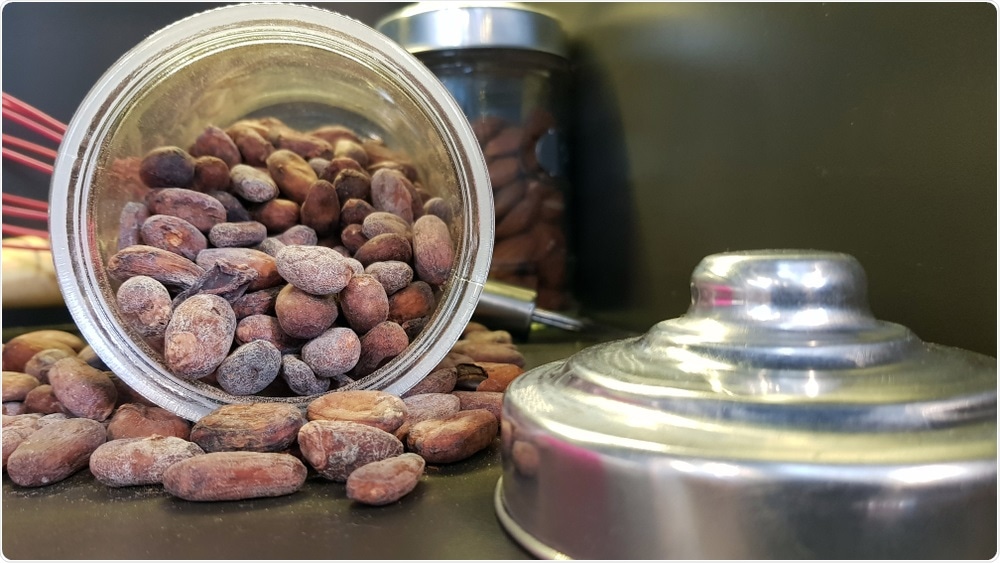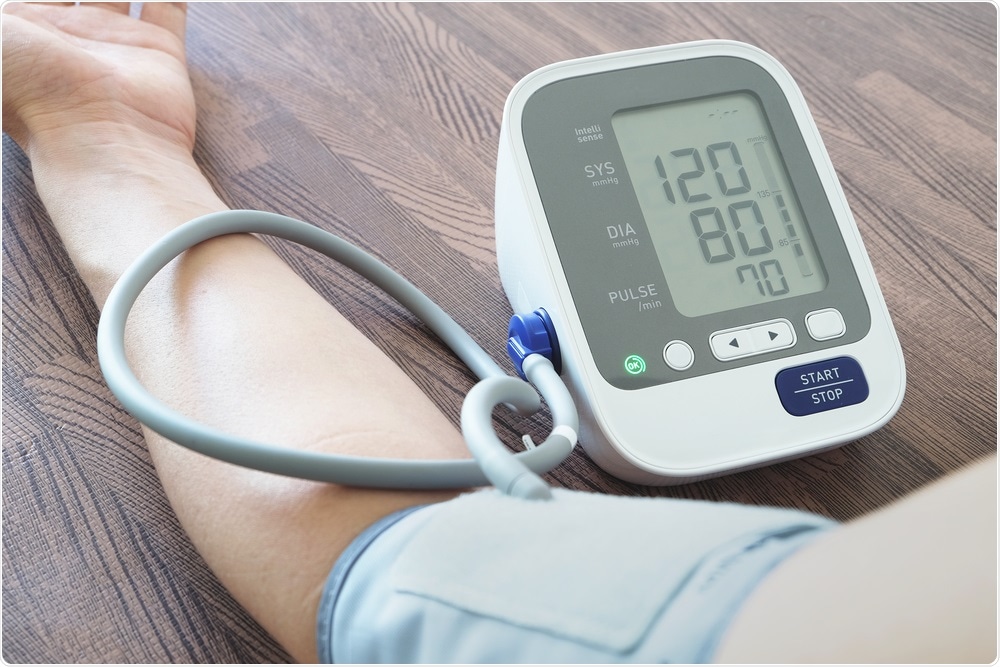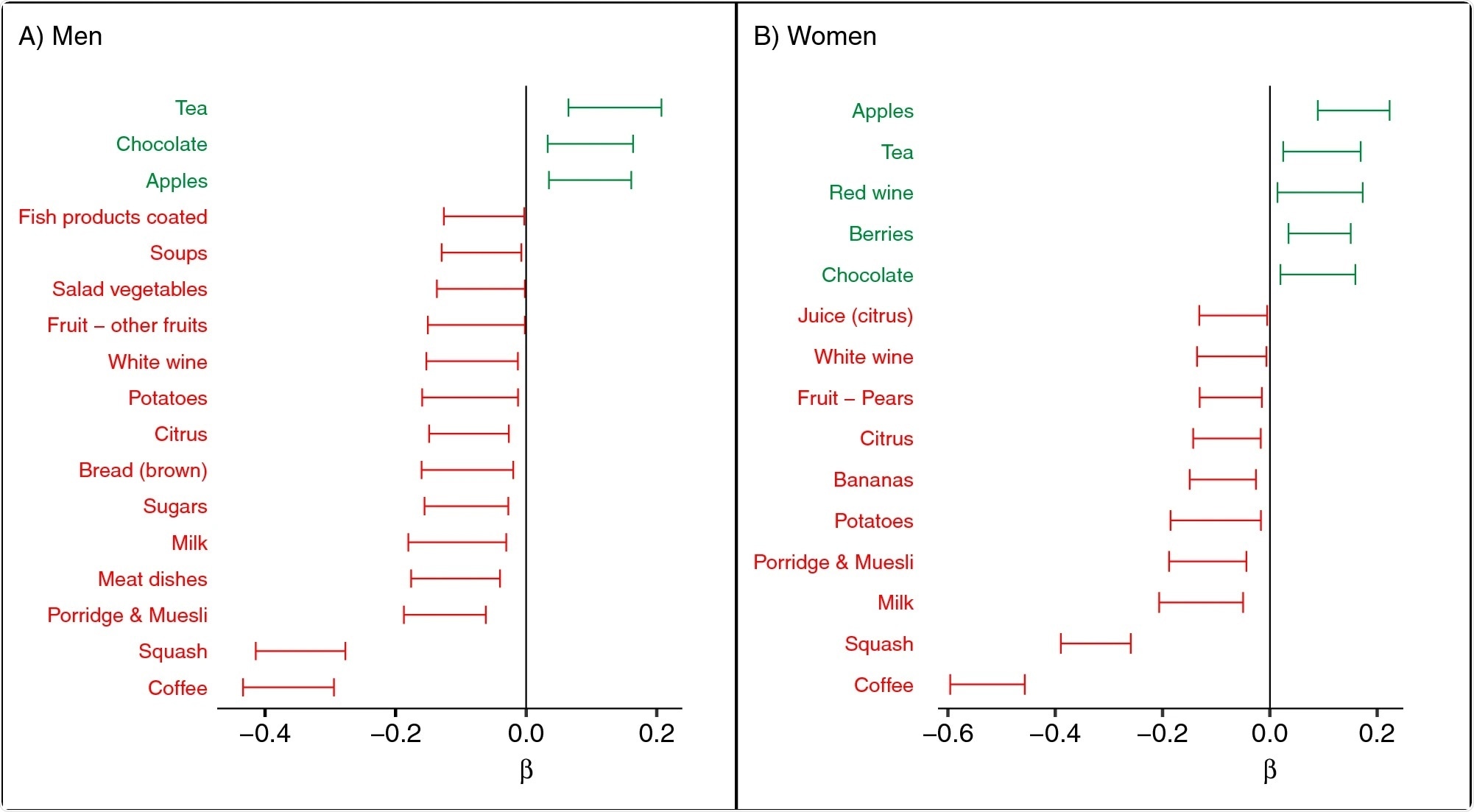In this interview, AZoLifeSciences speaks to Professor Kuhnle about his latest research which showed that a diet high in flavanols may lower blood pressure.
What provoked your research into different diets and their effect on our health?
I have always been interested in the impact of diet on health on a molecular level and am in particular interested in phenolic compounds such as flavanols.
Understanding the underlying pathways will help to find new ways to use diet to reduce the risk for many non-communicable diseases such as heart disease.

Image Credit: joel bubble ben/Shutterstock.com
What are flavanols, and in which foods and drinks are they typically found?
Flavanols are a group of polyphenolic compounds that are often referred to as bioactives. They have been shown to reduce blood pressure in many smaller, short-term dietary interventions studies.
They are found in a range of foods such as tea, pome fruits (in particular apples), berries, wine, and cocoa.
How is blood pressure affected by our diet? What cardiovascular diseases can arise from high blood pressure?
There are many aspects of the diet that can affect blood pressure – and in particular, being overweight or obese is often associated with higher blood pressure.
The DASH and Mediterranean diets are both known to reduce blood pressure, and so do for example diets rich in whole grain. Hypertension can lead to other CVDs to vascular diseases, ischaemic heart disease, and stroke.

Image Credit: Seasontime/Shutterstock.com
Many nutritional studies rely on participants self-reporting their food consumption. What are the limitations of this within research?
The limitations are two-fold: one is misreporting by study participants. This introduces not only a random error (i.e. noise) but also a systematic error: for example, we could show that obese participants underreport sugar intake. This systematic error affects the outcome.
The second limitation is the reliance on food composition data to estimate the intake of individual compounds. Food composition is extremely variable and therefore it is impossible to estimate the actual intake of an individual compound without further information (e.g. a duplicate diet).
Can you describe how you carried out your study?
We have used a different approach and measured the intake of flavanols using nutritional biomarkers, that is compounds that are found in urine and reflect accurately intake. This has required the development and validation of these biomarkers before we could analyze about 25,000 urine samples from the EPIC Norfolk cohort.
What did you discover?
We found that participants in the top 10% of flavanol intake have a lower blood pressure than those in the bottom 10% - and the difference is between 1 and 3 mmHg, with higher differences in hypertensive participants.
This is comparable to the effect seen with the DASH medium salt diet or a Mediterranean diet. We also found that there is very little agreement between self-reported and objectively measured intake.

Image Credit: Biomarker-estimated flavan-3-ol intake is associated with lower blood pressure in cross-sectional analysis in EPIC Norfolk
In your study, you chose not to rely on participants reporting on their diet but instead focused on measuring flavanol intake objectively by using natural biomarkers. What natural biomarkers did you investigate, and why was this methodology so important?
We developed nutritional biomarkers from metabolites of flavanols. These biomarkers were either derived from microbial metabolites (gamma-valerolactones) or the metabolites of a specific flavanol (epicatechin).
What are the next steps in your research?
The biomarker can be applied to a wide range of other studies to investigate in more detail the metabolism of flavanols and interactions with other nutrients.
About Professor Kuhnle
Professor Kuhnle is a Professor of Nutrition and Food Science at the Department of Food & Nutritional Sciences at the University of Reading.
Before coming to Reading, he was a Scientist at the MRC Epidemiology Unit and the MRC Dunn Human Nutrition Unit in Cambridge.
His research interest is the development of objective measures of dietary intake and other exposures, and to use those data to investigate associations with health endpoints.